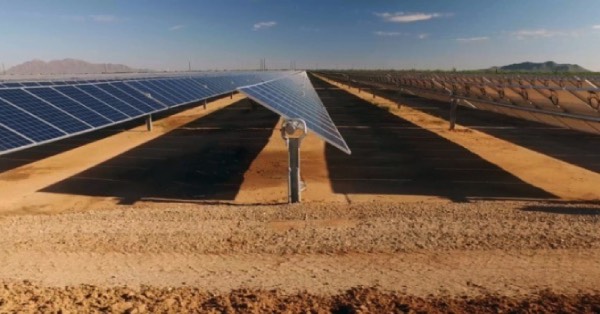- EBRD extends support for Egypt’s private-to-private renewables sector
- New US$ 5.5 million tranche of loan to TAQA Arabia renewables subsidiary
- Loan to finance the construction of a 7 MWp solar PV plant at El Minya
The European Bank for Reconstruction and Development is promoting the expansion of renewable energy in Egypt by releasing a new tranche of financing worth US$ 5.5 million to TAQA PV for Solar Energy, TAQA Arabia’s renewable energy subsidiary, under its existing facility for green private-to-private projects.
The new funding comprises a US$ 4.95 million loan from the EBRD and a US$ 550,000 concessional loan from the Global Environment Facility to finance the construction and operation of a 7 MWp solar photovoltaic project in El Minya. The project will sell all of its electrical output to ASCOM Carbonate and Chemical Manufacturing under a 25-year power purchase agreement.
This tranche follows an initial US$ 4.2 million loan in December 2020 to finance the construction and operation of a 6 MWp solar PV power plant at Dina Farms in the Beheira governorate, 80 km from the Egyptian capital, Cairo. This plant was the first private-to-private renewable energy project financed by the EBRD in Egypt and it enables Dina Farms, the largest dairy farm in Africa, to use clean energy for some of its energy consumption.
These investments contribute to the ongoing energy transition in Egypt, host of the COP27 global climate summit, by supporting the growth of renewable energy. The Egyptian government aims to raise the national share of electricity generation capacity from renewables from 20 per cent in 2022 to 42 per cent by 2035. The government has pursued energy diversification and liberalisation by facilitating a market for private renewable energy development in recent years. The expansion of the private-to-private segment is an important milestone in the gradual liberalisation of the Egyptian electricity sector.
Nandita Parshad, Managing Director of the EBRD’s Sustainable Infrastructure Group, said: “We are very proud to be extending our partnership with TAQA Arabia to scale up private renewable energy capacity in Egypt. Supporting the growing private-to-private segment of renewable energy is critical to accelerate the decarbonisation of the economy and foster green supply chains in Egypt and across the African continent.”
Pakinam Kafafi, CEO of TAQA Arabia, said: “This project confirms TAQA Arabia’s ability to provide the latest sustainable solutions to a large base of private-sector companies, such as ACCM. The new plant will contribute to ACCM’s efforts to maximise the opportunities of using renewable energy resources, reducing its total annual electric power consumption by 16%. Its gives us great pride to extend our partnership with the EBRD, a development finance institution that focuses on promoting private-to-private, green, sustainable energy projects aimed at developing society and providing a better quality of life.”
TAQA PV for Solar Energy is a project company incorporated in Egypt for the purposes of developing the private-to-private renewable energy business of TAQA Arabia SAE, an Egyptian joint stock company (a subsidiary of Qalaa Holdings).
This project falls under the Southern and Eastern Mediterranean Private Renewable Energy Framework (SPREF), which supports the development and financing of innovative business models and the mobilisation of private finance for renewable energy projects in the southern and eastern Mediterranean region. The framework is supported by the Global Environment Facility and the Clean Technology Fund. SPREF also comes under the umbrella of the Regional Dialogue Platform on Renewable Energy and Energy Efficiency, created by the Union for the Mediterranean to promote the deployment of renewable energy and energy efficiency measures in energy generation, transmission, distribution and end use.
To date, the EBRD has invested more than €10.3 billion in 154 projects in Egypt, where the Bank’s areas of investment include the financial sector, agribusiness, manufacturing and services, as well as infrastructure projects in areas including the power sector, municipal water and wastewater services, and transport.









































